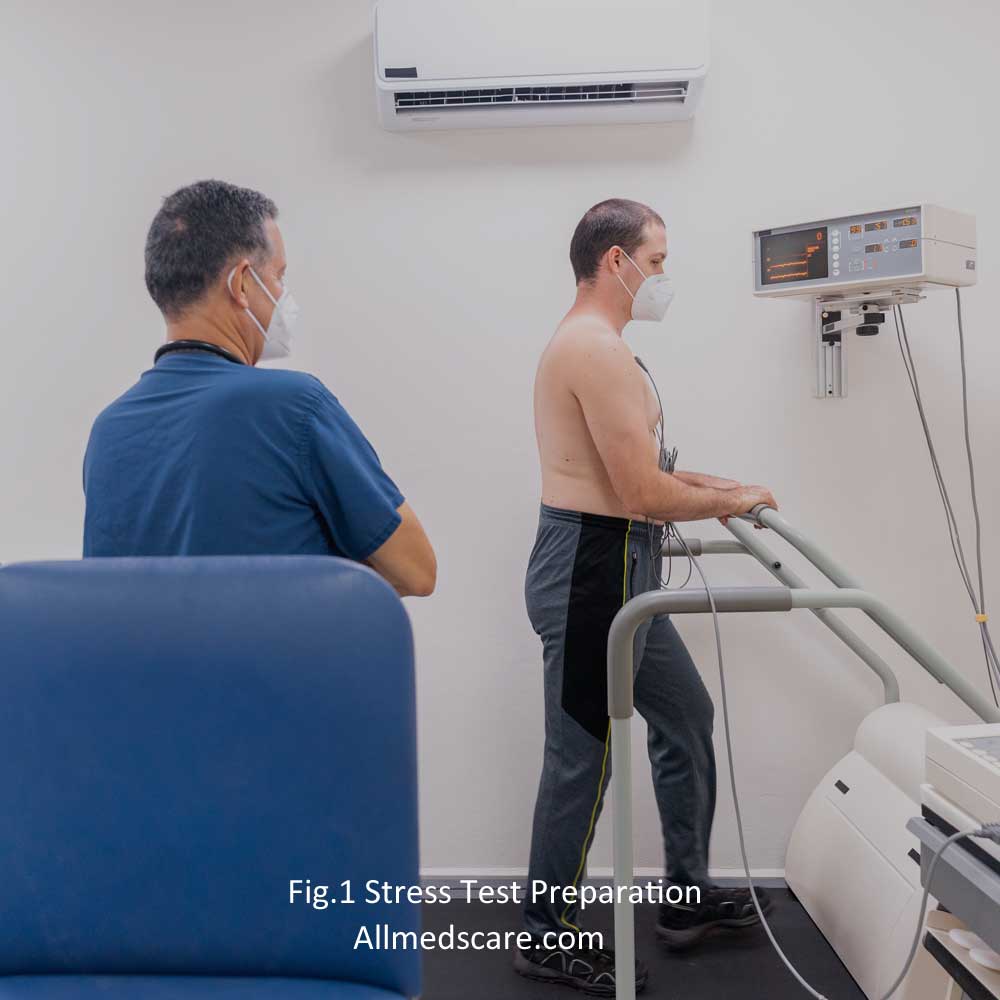
Preparing for Stress Test: Everything You Need to Know
A stress test is a series of examinations that help determine how well the heart performs during physical activity. It is used to diagnose existing heart disorders as well as detect abnormalities in heart rhythm or blood flow. Cardiovascular diseases such as arrhythmia, coronary artery disease, and other conditions are detectable and preventable with the help of stress testing.
The risk involved with a stress test includes
- Side effects from medications used during the procedure
- Irregular heartbeat or chest pain due to exertion
- Rare cases of stroke or cardiac arrest while exercising on a treadmill
However, these risks are minimal compared to long-term consequences brought on by undiagnosed heart conditions, which can be found with routine stress testing.

Preparations
It’s crucial to discuss the procedure with your doctor beforehand when preparing for a stress test. In-depth details on what to anticipate and how to prepare for the test will be provided to you by your doctor. Additionally, it’s crucial to avoid eating or drinking anything before the test as this could affect the outcomes. Wearing loose-fitting clothing and shoes is important so as to perform any necessary physical activity without difficulty during the procedure.
Given that stress tests involve some level of physical exertion, you should inform your doctor before taking them if you have any pre-existing medical conditions. This includes any current heart or circulatory conditions, such as high blood pressure, arrhythmia, or coronary artery disease. Beta blockers or nitro-glycerine pills may interact with those administered during the stress test. Make sure to reveal all prescriptions to the concerned doctor.
Mental preparation is must to manage the stressful situation. Plenty of sleep beforehand, paying close attention to doctor and nurse instructions as the procedure progresses is very important. Being aware of any risks associated with stress testing can help reduce the anxiety surrounding it while allowing for accurate test findings. By considering these things in advance, patients can more effectively prepare themselves for the results of their upcoming stress tests.
Conducting a Stress test
There are different types of stress tests available depending on the patient’s needs. The most common type is an exercise stress test, which involves running or walking on a treadmill to measure heart rate and breathing levels during physical activity. Other techniques include pharmacological stress testing, which involves using drugs to raise blood pressure and heart rate to mimic the effects of exercise. Imaging techniques such as echocardiography, CT scans and MRI during a stress test help to identify any alterations in the size or structure of the heart .
A stress test has two purposes: First, it helps identify any problems with both cardiac (heart) and pulmonary (lungs) function, and second, it measures how well the ventricles react when they work harder due to increased demand from physical activity. The goal of this process is to identify any early warning signs of coronary artery disease or arrhythmias, such as chest pains, irregular heartbeat patterns, reduced oxygen levels in blood samples from the fingertips or ears after exercise, etc.
Stress tests provide important information about a person’s cardiovascular health. Consequently, medical experts should always advise regular testing if risk factors exist for certain medical diseases related to cardiac function; Especially for people who have previously experienced angina pectoris (chest pain).
Precautions
After a stress test, it’s crucial to take preventative steps to help your heart’s health. The most crucial precaution is to restrict physical activity for at least 48 hours after the procedure. This includes strenuous exercise, lifting large objects, and any other action that might considerably raise your heart rate. Rest and give yourself enough time to heal during this period so that you may resume your normal activities safely afterward.
Additionally, it’s important to follow up with daily check-ups with a doctor to track any changes in your cardiovascular health over time. Echocardiograms at least once a year are important. During each visit to tracking the progress and making related adjustments, if necessary, based on new findings is important.
It is important to follow all medications prescribed by the doctor before or during the stress test period. There may be different instructions for use based on similar ingredients. It is also essential not only to adhere strictly but also to keep doctors informed about allergies if any change occurs while taking medications prescribed after a stress test so as prevent potentially serious complications due to improper consumption of medications related to cardiac conditions like arrhythmias and others.
Conclusion
In conclusion, stress tests are a crucial tool for identifying and preventing illnesses related to heart health. Psychological preparation is important for potentially stressful situations. It creates awareness of the risks associated with stress testing before the process. Regular check-ups with your doctor are also necessary for optimal recovery time after a stress test and to monitor changes in cardiovascular health. The stress test protocol is vert important. The doctor should be informed of any changes in allergies or prescription use while taking prescribed medications. These suggestions can help people better prepare themselves for successful results in their upcoming stress tests.






